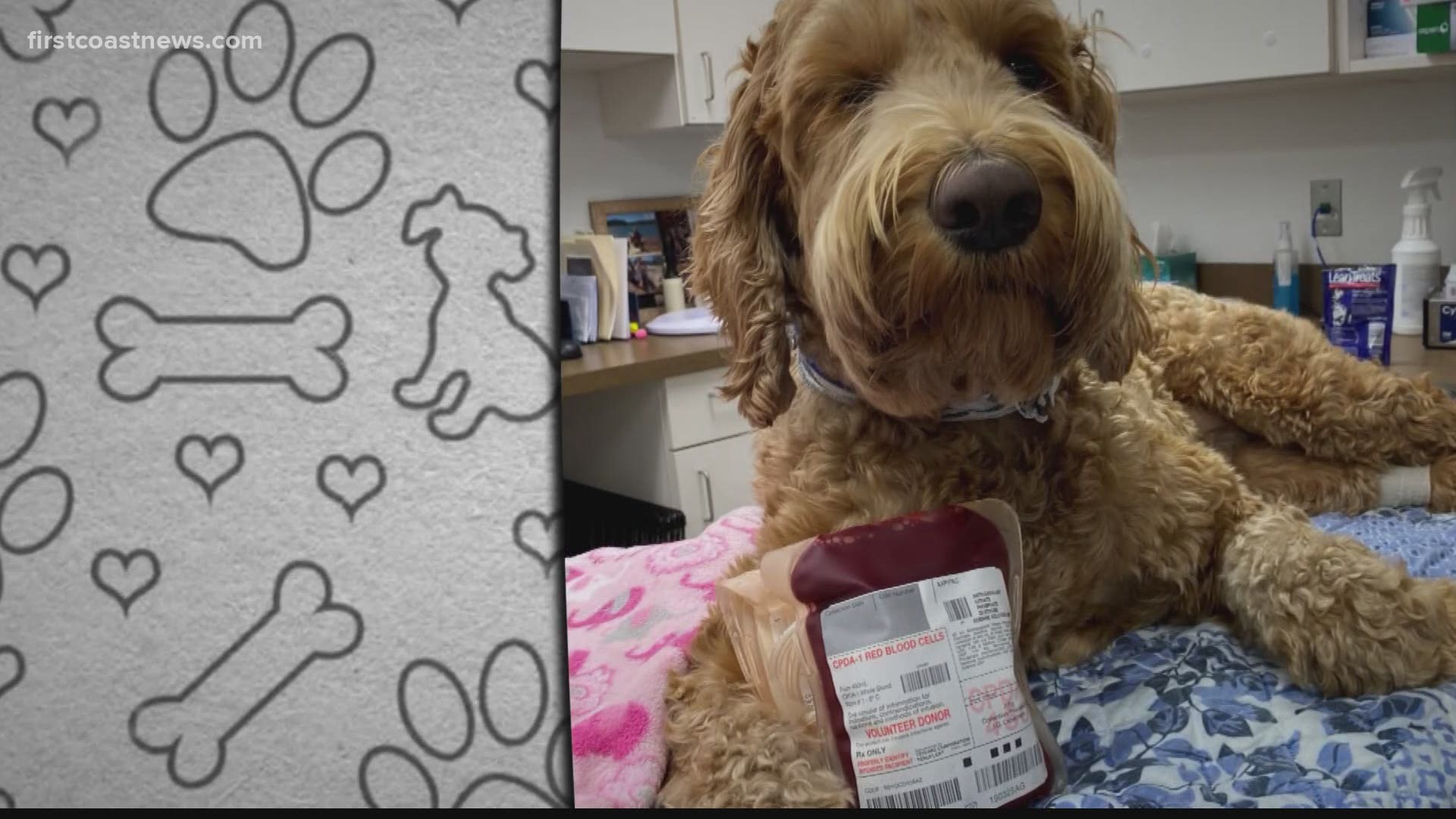JACKSONVILLE, Fla. — Duke is a loving dog and a life-saver by donating his blood that may help another dog he may never get to see at the dog park.
"I get tears in my eyes," Duke's owner Suzy Giunta said when talking about her thoughts of Duke's donation.
Duke's blood went to Buddy, who needed an emergency surgery after veterinarians discovered he had internal bleeding.

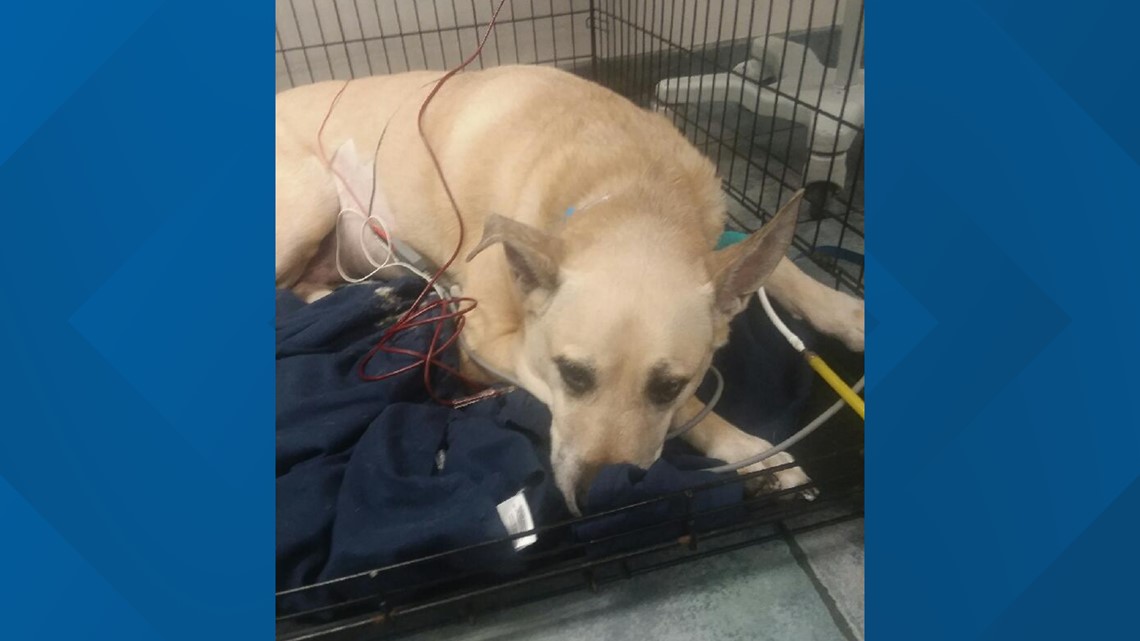
Like humans, blood donations can be life-saving for animals, and the need is high. Veterinarian Dr. James Barr, Chief Medical Officer of Blue Pearl Animal Hospitals, said blood donations for dogs are down by about 40% across the nation.
Blue Pearl has 11 pet blood banks across the U.S. In Seattle, the wait for blood can be too long to keep a hospital supplied comfortably. Sometimes blood is backordered for five weeks.
So vets are reaching out to their local communities to encourage people to have their dogs donate vital blood that could go a long way.

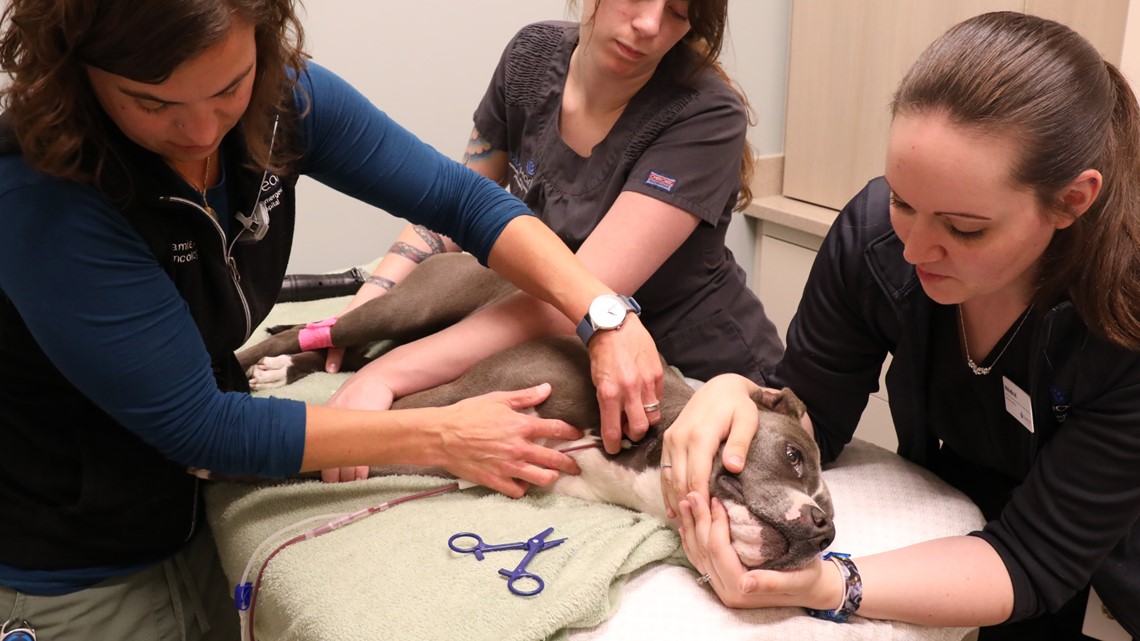
The closest facility that handle dog blood donations to the First Coast is at the University of Florida in Gainesville.
Dr. Kirsten Cooke an associate professor at UF's College of Veterinary Medicine, said their blood donation program has been going on for two decades.
"We've had well over 1,000 dogs," Cooke said, referencing the number of dogs who have donated blood.
Dr. Cooke said last year, they gave blood transfusions to about 350 dogs, up 25% from the previous year. Some of those dogs had been hit by cars and needed emergency help.

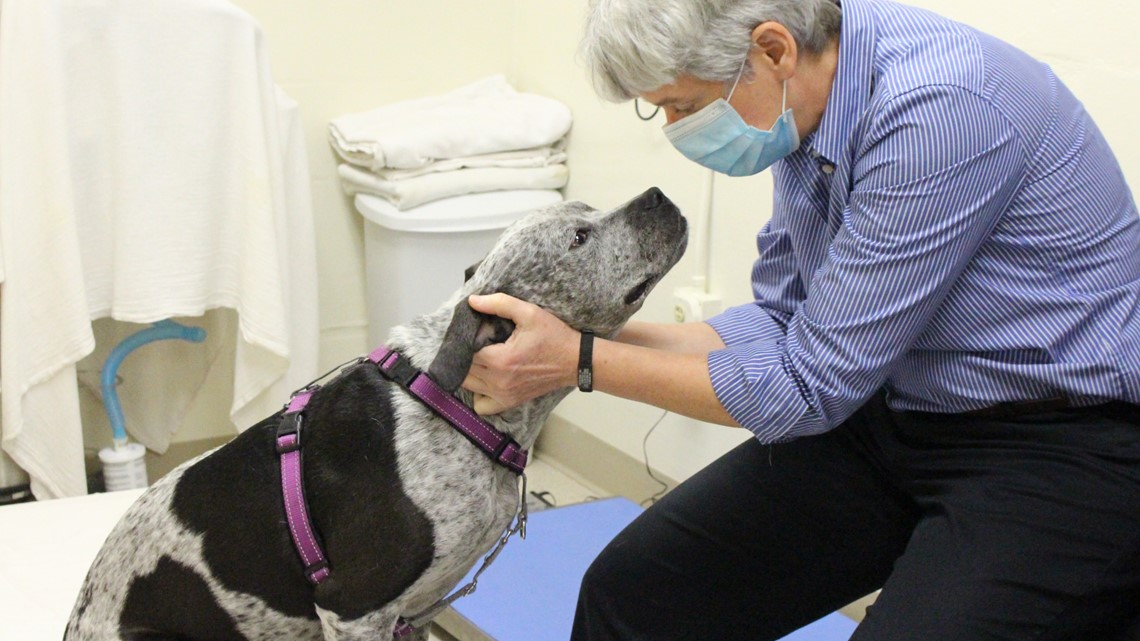
Cooke said it is important that the dog is calm for such a procedure for it to donate blood. The dog will not be sedate during the donation process.
To qualify to be a blood donor, dogs must be between one and five years old and at least 50 lbs. People must also make a commitment to donate blood every two months for two years.
However, in return, the university will provide the dog with vaccinations, an annual exam and tests for various diseases for free.
Dogs also are given treats and toys after the procedure.
Cooke said it is important that the dog is calm for such a procedure for it to donate blood. The dog will not be sedate during the donation process.
To qualify to be a blood donor, dogs must be between one and five years old and at least 50 lbs. People must also make a commitment to donate blood every two months for two years.
However, in return, the university will provide the dog with vaccinations, an annual exam and tests for various diseases for free.
There is another dog donation program at Blue Pearl in Tampa Bay. Blue Pearl requires of commitment of donating blood every two to three months for one year.
Blue Pearl also has a cat donor program. However, cats are sedated during the process, as they tend to move more than dogs. UF does not do cat blood donations.

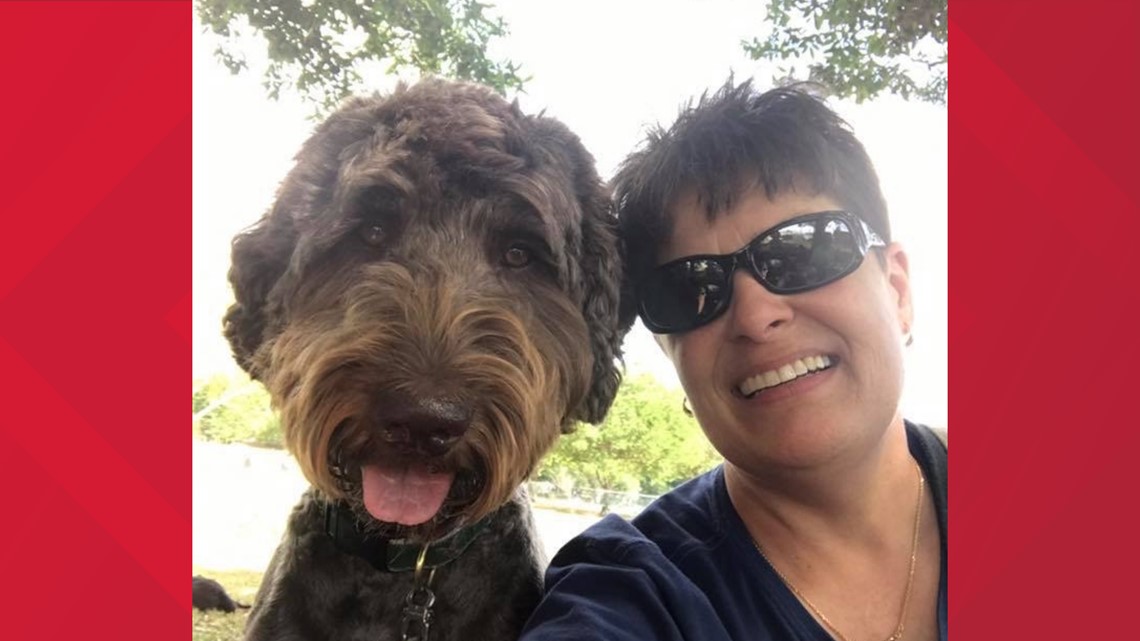
Despite the commitment, Suzy Giunta said participating in the blood donation program makes her proud that she will help other dogs in need. However, it makes her feel nostalgic for the pets she lost in the past.
"I think I grieve more losing a pet then a close friend," Giunta said, reflecting on the passing of her previous dog Chester. "This morning I took [Chester's] urn and dusted it off. I looked at the pictures and touched them."
All this to say dogs are incredibly important to our lives. Giunta said if your dog can become a donor, it will give you a really good feeling.

